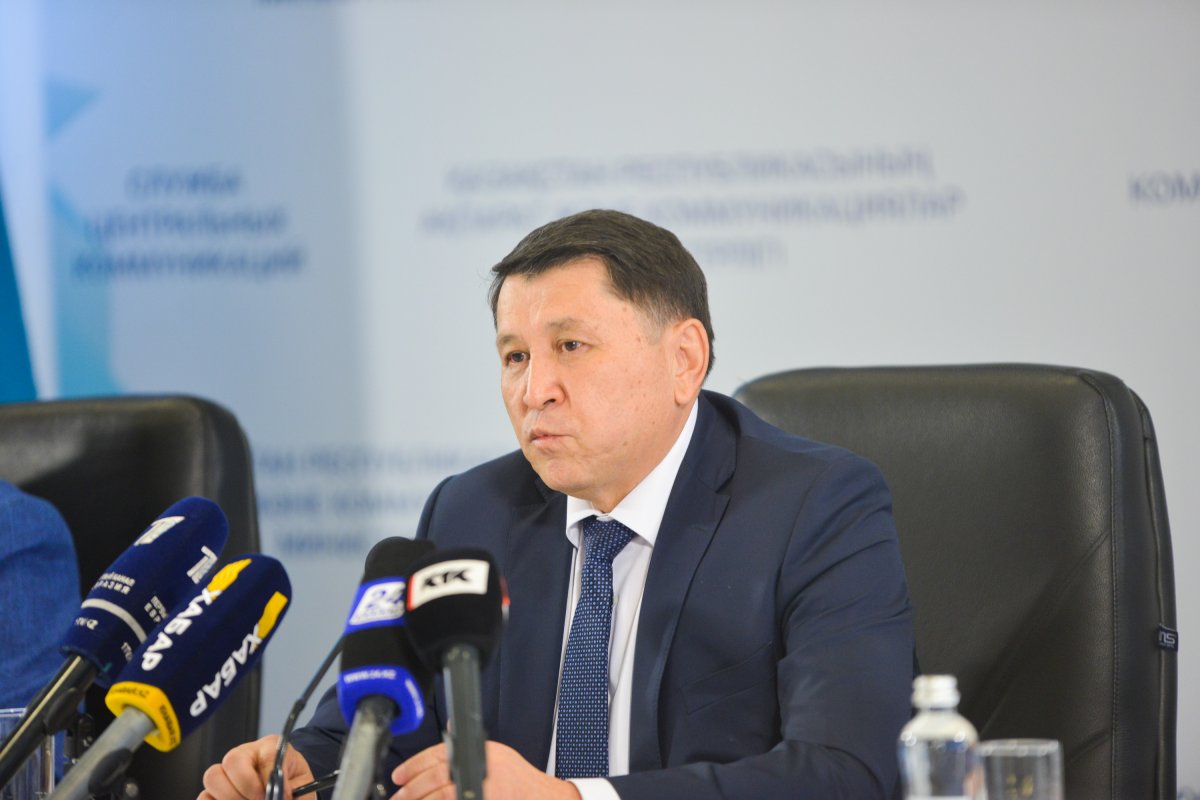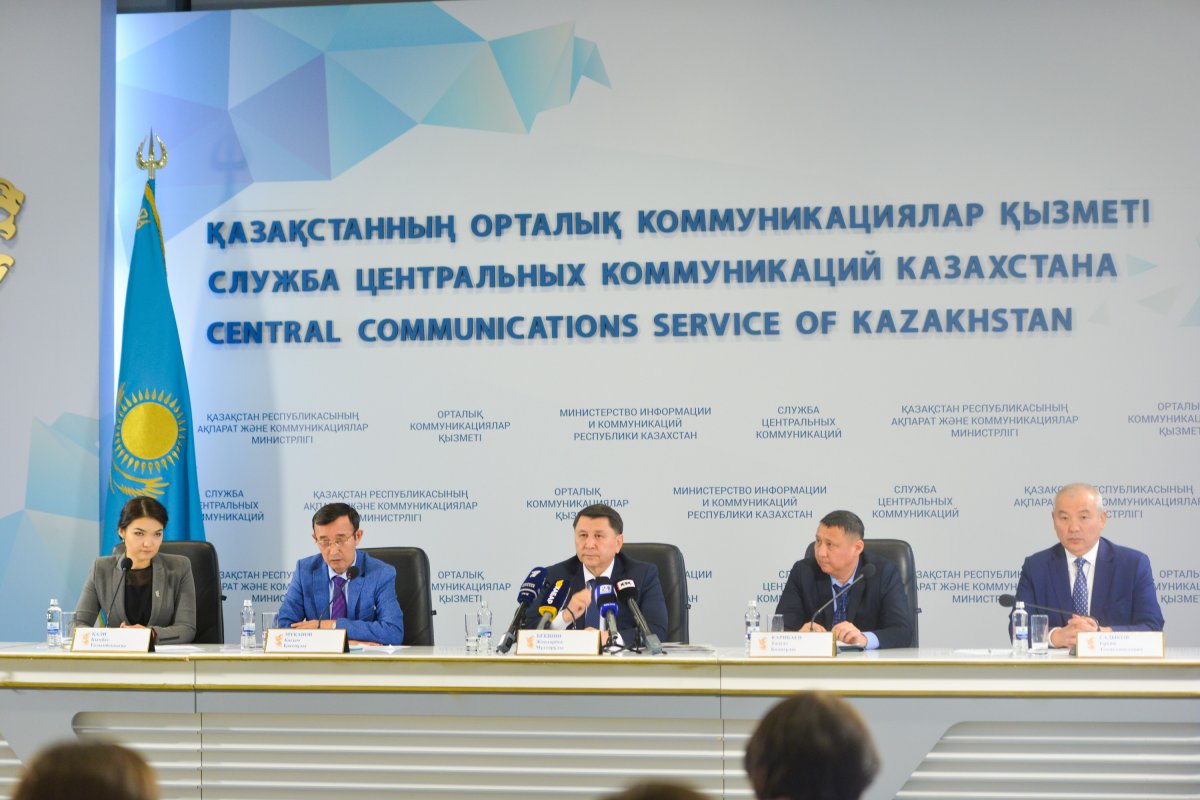A year has passed since the opening in Kazakhstan on the basis of the Scientific Center. M. Aykimbaeva. The staff of the Central Reference Laboratory, scientists from three ministries - health, agriculture, science and education - ensure the country's biological safety and prevent outbreaks and the importation of infections into the republic told the chairman of the Public Health Committee, Chief Sanitary Doctor of the Republic of Kazakhstan Gendarbek Bekshin.
In all economically developed countries of the world that have an appropriate laboratory base, there is organized a clear control over infectious diseases not only characteristic of the country, but also known in the world. They are the guarantor of epidemic well-being, traditionally helping other countries in training. Such functions are performed by the Center for Disease Control in the United States (CDC), the Pasteur Institute in France, and scientific centers in Germany, Russia, Canada, China, and other countries of the world.
According to the World Health Organization, every year more than 1 billion people in the world become infected with dangerous infectious diseases, of which about 16 million are fatal, half of the world's population is at risk of natural focal diseases. Over the past 20 years, more than 30 new infectious diseases have been registered in the world (hemorrhagic fevers of Marburg, Ebola, Lassa, Dengue, legionnaires' disease (legionellosis), SARS (severe acute respiratory syndrome), coronavirus, "disease X", etc.).
This year, more than 120 thousand cases of cholera have been registered in the world (of which about 500 are fatal), more than 200 cases of yellow fever (of which 85 are fatal). The Ebola epidemic in Congo continues in the current year, which began in 2014–2015, when more than 30 thousand cases were registered in Guinea, Liberia, Nigeria, Sierra Leone and Senegal, of which more than 10 thousand were fatal. In 2018, an outbreak of an unknown deadly infection called “Disease X” was registered in Africa, which WHO declared to be a “global threat”.
Unfortunately, highly effective vaccines for most dangerous infectious diseases, other than smallpox and tularemia, currently do not exist. Under these conditions, the governments of the United States and the European Union have launched a number of programs aimed at preventing the spread of infections, as well as training doctors in biosafety. The network of central (for a particular country) reference laboratories of high class biological safety and biological protection has become the strong points for these programs.
These laboratories perform a variety of functions: study and emergency response to outbreaks of especially dangerous infections using modern technologies; training of physicians (epidemiologists, microbiologists, infectious disease specialists and veterinarians) in modern methods of diagnosis, biosafety, bioprotection, laboratory control and field practice; ensuring the safe operation and storage of pathogens used in research and production of diagnostic products and vaccines.
For Kazakhstan, the issue of creating a reference laboratory is more than relevant. First, in our country there are natural foci of plague, tularemia, hemorrhagic fevers, anthrax, which are activated under the influence of climatic and anthropogenic factors. The incidence of brucellosis, imported cases of cholera, dengue fever is recorded annually. The situation is similar in neighboring countries. Secondly, the development of tourism and imported cases.
Kazakhstan is actively developing international programs aimed at the development of biological safety and rapid response to outbreaks (protecting people, animals, plants and the environment from contamination / contamination by pathogenic microorganisms), biological protection, and field epidemiology.
For example, Kazakhstan has implemented projects of the European Union, the International Science and Technology Center, the Ministry of Foreign Affairs and Trade of Canada, the German Advanced Training Program in Biological and Medical Safety at the German Foreign Ministry, as well as the CDC and the Threat Agency of the US Department of Defense; a partnership has been established with international research centers .
Thirdly, Kazakhstan is a country that voluntarily renounced weapons of mass destruction, including nuclear, chemical and biological components.
In this regard, Kazakhstan, within the framework of the Biological Threat Reduction Program, has eliminated all the existing infrastructure related to the testing of weapons of mass destruction.
Scientific Center. M. Aykimbaeva renders assistance to colleagues of neighboring countries in providing organizational and methodological assistance in organizing and conducting anti-epidemic measures when registering especially dangerous infections, training personnel, and providing immunobiological preparations. Thus, during an outbreak of plague in 2013 in Kyrgyzstan, the KNSCCRI experts traveled to assist in organizing and conducting anti-epidemic measures.











